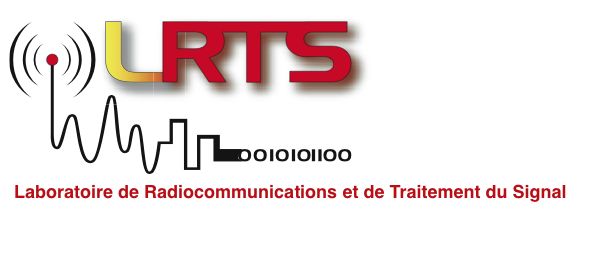| Description : | Soutenance de thèse : Universal Decoder for Low Density Parity Check, Turbo and Convolutional Codes
Many wireless communication systems have adopted turbo codes and convolutional codes as the forward error correcting codes (FEC) scheme for data and overhead channels. However, some releases propose LDPC codes for error correction due to the relative complexity of turbo codes decoder implementations and the success of some irregular LDPC codes in achieving the same performance as turbo codes, in some cases surpassing it with low decoding complexity. It is also noteworthy that the new standard releases of these systems will work side by side in actual devices with older ones which are based on turbo and convolutional codes.
Indeed, these two families of codes are both very good in BER performance. Therefore, it seems a good idea to try to relate them so as to enhance technology transfer and hybridization between the two methodologies. Thus, efficient design of universal convolutional, turbo, and LDPC codes decoders is critical for future wireless system implementations. In addition, an efficient decoder for turbo and convolutional codes is mandatory for the implementation of these wireless systems.
This could be accomplished by developing a unified decoding algorithm for convolutional, turbo and LDPC codes through simulations and analytical studies followed by an implementation phase. To introduce this universal decoder, there are two approaches, either based on the maximum a posteriori (MAP) algorithm or the Belief Propagation (BP) algorithm.
Herein, we investigate a new approach to decode convolutional and turbo codes by means of the belief propagation (BP) decoder used for low-density paritycheck
(LDPC) codes. In addition, we introduce a general representation scheme for convolutional codes through parity-check matrices. Also, the parity-check matrices of turbo codes are derived by treating turbo codes as parallel concatenated convolutional codes. Indeed, the BP algorithm provides a highly effective general methodology for devising low complexity iterative decoding algorithms for all convolutional code classes as well as turbo codes. While a small performance loss is observed when decoding turbo codes with BP instead of MAP, this is offset by the lower complexity of the BP algorithm and the inherent advantage of a unified decoding architecture. Furthermore, the present work exploits the parity-check matrix representation of tail-biting convolutional and turbo codes, thus enabling decoding via a unified belief propagation (BP) algorithm for new wireless communications systems such asWorldwide Interoperability for Microwave Access (WiMAX) and Long Term Evolution (LTE). Eventually, to predict the convergence threshold of turbo codes, we applied the extrinsic information transfer (EXIT) chart method to the corresponding decoder by treating it as a concatenation of variable and check nodes."
|

